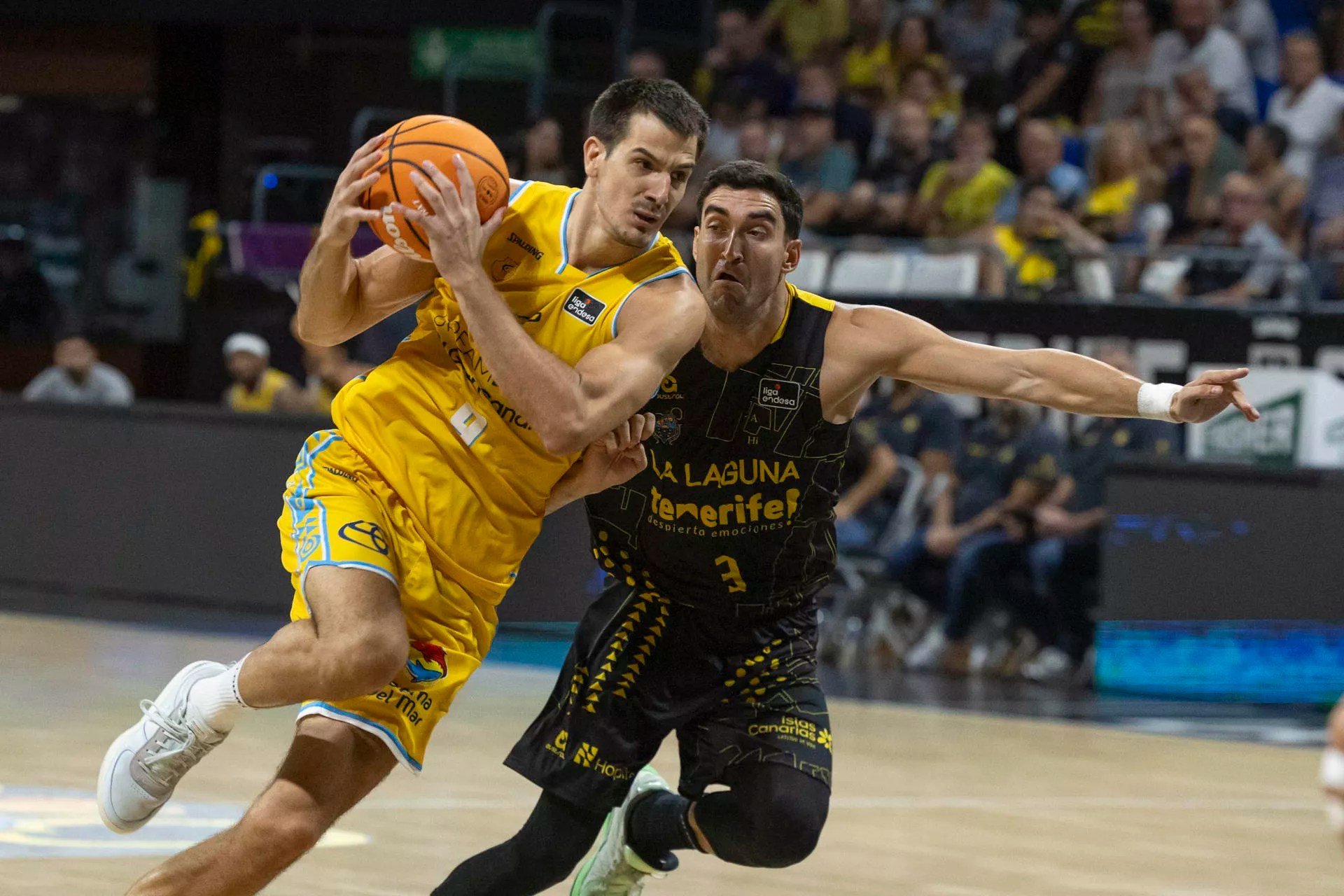The mayor of Santa Cruz, José Manuel Bermúdez, has proposed the initiation of a file of honors and distinctions in the person of Juan Carlos Caco Senante Mascareno for his contribution to the musical culture of the Islands and his defense of the folklore and cultural roots of this Archipelago. This was announced yesterday by Bermúdez, who indicated that “this Saturday I was able to communicate in person to Caco Senante himself that I have proposed to grant him from the City Council the appointment of him as Favorite Son of the city. Caco has been the ambassador of Santa Cruz and the Canary Islands throughout the world throughout his artistic career, he has dedicated numerous songs to the city and it is only fair that the capital repay at least part of all the good that this chicharrero has done”.
Caco Senante performed this Saturday in the Plaza de La Candelaria, in a concert within the program of events for the Fiestas de Mayo, before more than 2,000 people who were able to enjoy the repertoire of the chicharrero singer.
In a private meeting at the Real Casino de Tenerife, the mayor communicated his decision to Senante that he is “a chicharrero proud of his roots and has actively participated in the main festivals of this city, May Festivals or Carnivals”, and He added “he has climbed to the most important stages of the capital and has made the Canary Islands better known throughout the world with his music.”
a long career
Born in Santa Cruz de Tenerife, Canary Islands, on the 2nd floor of 17 Pérez de Rozas street, at 7:30 a.m. on Tuesday, October 25, 1949, Caco Senante is the son of a military legal lawyer, José María Senante Benet , from Alicante, and Rosalba Mascareño Rodríguez, from the Canary Islands.
Without having turned one year old, he already began to spend the summers in Alicante, his father’s land. With two and a half years she begins to attend the German School. His vacations alternated between Alicante and the house of his maternal grandparents, Policarpo and Benigna, in Candelaria, a town on the Tenerife coast, where his grandfather owned the cinema. This played a decisive role in the musical and cinematographic formation of her. In 1961 he changed from the German School to the San Ildefonso School of the De La Salle Brothers, where he stayed for two courses.
His father was a scholar in Spanish poetry, an excellent rhapsode and a music lover. In those years he gave lectures on the work of Lorca, Miguel Hernández and Alberti, and somehow made him live in a cultural environment, decisive for his formation.
In the summer of 1963, he entered a boarding school at the Jaime Balmes School in Gran Canaria.
In October 1964, he enrolled to study 5th year of Baccalaureate at the Santa Cruz High School, where he would continue until he finished Pre-University.
In 1969 he enrolled in the Higher School of Architecture of Las Palmas de Gran Canaria.
He played basketball. He did it in the youth teams of the Real Club Náutico de Tenerife and in the 2nd Division, with Claret and Pepsi Sansofé, from Las Palmas de Gran Canaria.
On January 21, 1971, he went on stage for the first time. He gives a recital in the Assembly Hall of the School with a repertoire based on Latin American folklore, mainly Argentine music.
He is the founder, along with other acquaintances, of the longest-running music program on television in Spain, Tenderete, which has been broadcast since 1971 on TVE in the Canary Islands.
In 1973 he dropped out of architecture studies and began to participate in concerts, before moving to the United States, hired as an assistant professor of Spanish by Bucknell University in Pennsylvania. There he remains until 1975.
He has participated in different editions of the Fiestas de Mayo and the Carnival of Santa Cruz de Tenerife, and is a regular on the stages of the capital of Tenerife. Since 1975 he has been professionally dedicated to music and moved to Madrid. He recorded his first album that year Entre amigos, with the collaboration, among others, of Teddy Bautista and Taburiente.
He has participated in countless festivals, all of them in favor of popular songs, music with strong social and protest roots. In addition to his musical career, he has also been a music entrepreneur, in the gastronomy sector, an actor…
In 1982 he published his fourth album: Mojo Picón. The song that gives the album its title becomes such a success that today, 41 years later, it continues to be an obligatory reference in his repertoire.
In addition to Tenderete, he has directed other television spaces, such as Punto de Encuentro, and radio programs, such as Al son de Caco, on Radio Cadena Española. He was a representative of TVE at the OTI Festival and participated in the famous Amanecer Latino festival in Tenerife, sharing the stage with Celia Cruz, Oscar D’León, Rosario, The New York Band, Sabandeños, Kiara and Garibaldi. He has been a regular on programs of a musical nature, such as Lluvia de Estrellas and Menudas Estrellas and has taken his music to all corners of the planet.














